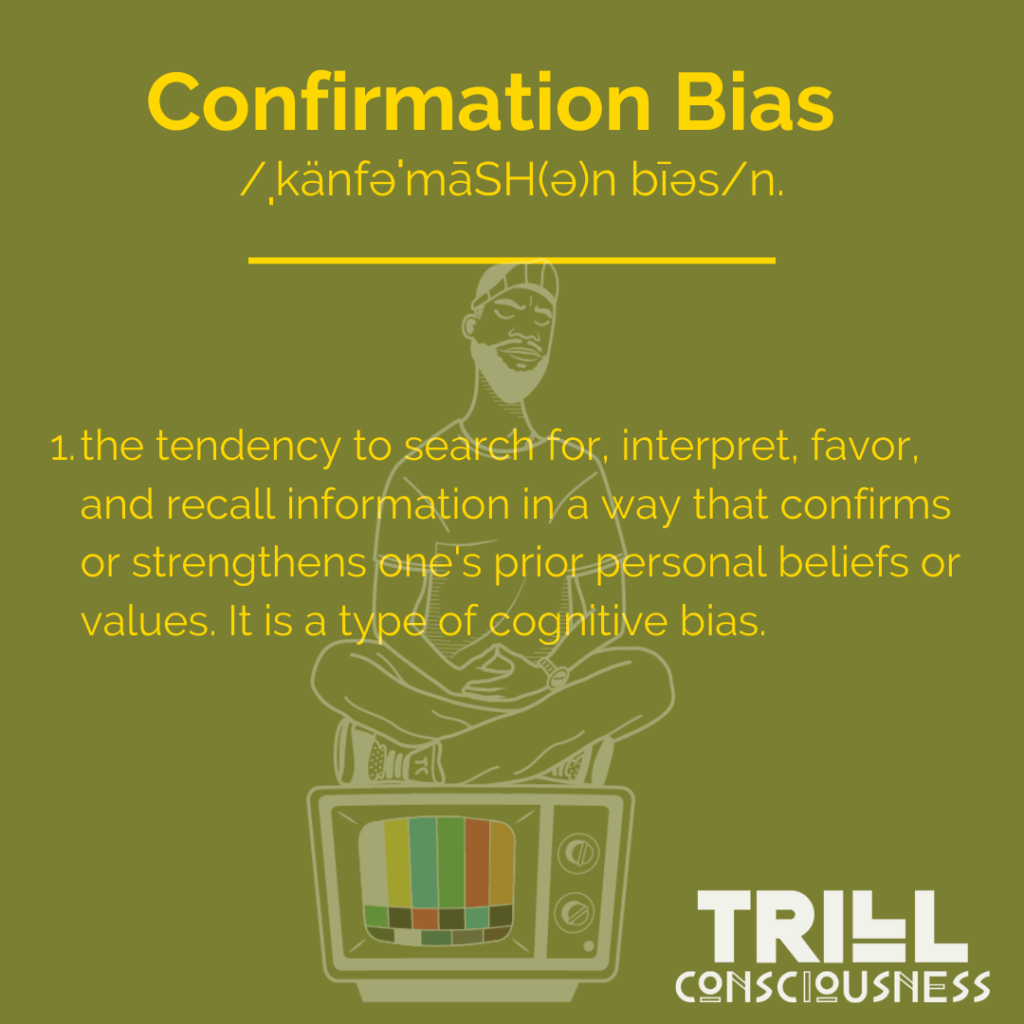Uncategorized
Confirmation Bias
Confirmation Bias
Imagine for a second there was a very significant event that happened all over the world that was dangerous and significantly increased a certain demographic’s chances of dying after proving to be fatal for a large number of people.
Imagine further that there is a person or persons who(m) have garnered a quasi significant following by seemingly believing and espousing every conspiracy that has ever existed.
Now, in this thought experiment, let’s say there were a large majority of experts in a given field that validated that this event was extremely dangerous and needed to be treated and addressed as such.
Now, lets say there were a few people from that given profession that the majority were in alignment on, that go against the grain and decry the major event as false. Lets also imagine that said conspiracy theorizer is not a part of the most significantly impacted demographic
Confirmation bias would lead that group of people to give far greater significance to that piece of “evidence” that this imaginary event was a hoax. The statistical fact that the vast majority of people not only believe, but came in contact on the day to day with the impact of this event becomes irrelevant. This is b/c the thing that this imaginary conspiracy theorizer believes to be a conspiracy has been “confirmed” by this piece of evidence that flies in the face of a significant amount of conflicting evidence.
This would definitely raise eyebrows if the conspiracy let’s imagine it was to say, oppress people, were clearly manifested in other evidence, but in a way that didn’t impact the group that this theorizer belongs too. One could say that this person’s opinion should be heavily scrutinized and weighed against actual statistical significance.

